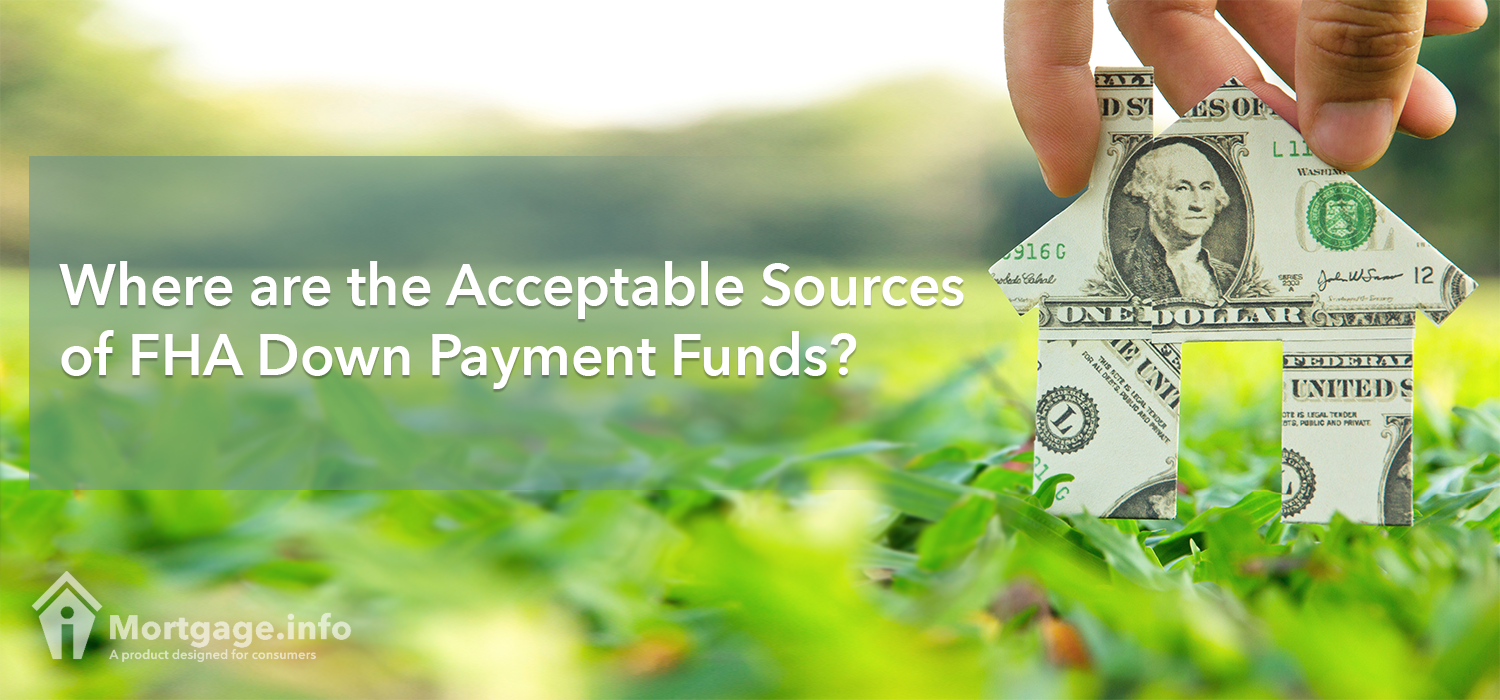
FHA loans are a great way to get into a home without putting a large amount of money down. Most borrowers put down just 3.5 percent on the home and finance the rest. Lenders are able to feel comfortable funding a loan-to-value ratio this high because the FHA provides them with a guarantee; if the borrower were to default, the bank would get most of the money back from the FHA. In order to keep up their reserves to guarantee loans like this, the FHA charges upfront mortgage insurance of 1.75% of the loan amount and annual mortgage insurance of 0.85% of the loan amount divided among 12 payments per year. Some borrowers are unable to come up with the down payment funds on their own, though and that is okay because the FHA allows gift funds.
Following are the areas that FHA down payment funds can come from:
Your Own Funds
The most obvious place to get your FHA down payment is from your own funds. These funds will get verified by the lender, though. You cannot just provide a bank statement showing the amount of money you need for the down payment and expect the lender to accept it. The lender will need to see where the funds came from, such as your regular income. If you cannot source the funds, they might not be able to be used as the lender needs to make sure that the account was not stuffed with someone else’s money temporarily in order to make your account look better.
Gift Funds
The FHA does allow borrowers to receive gifts from certain people. Just like a borrower’s own funds, however, the gift funds have to be sourced in order to ensure that they are not a loan of any type to the borrower. If it is a loan, the new payment would have to figure into the borrower’s debt ratio to determine if he still qualifies for the loan. The requirements regarding down payment gifts include:
- The person must either be a relative, employer, close friend that can document the relationship, charity, or government organization
- The person providing the funds cannot be anyone that is invested in the sale or purchase of the home including the seller, real estate agent, or builder
In order to identify the gift funds, the lender must go through the following steps:
- There must be proof that the funds originally belonged to the person providing the funds. This can be done with a bank statement from the donor showing the money in his possession and the transactions he took to take the money out and give it to the borrower.
- A gift letter must be signed by all parties. This letter must include wording that states that this is a gift and not a loan of any type. It should also include the dollar amount as well as the relationship between the borrower and the donor.
- The borrower must supply proof of receipt of the income, which can be done with a deposit slip or a recent bank statement.
The FHA down payment is usually only 3.5 percent of the sales price unless the borrower has a credit score lower than 580, then a 10 percent down payment is required. Regardless, the funds can come from the borrower or a donor in any amount; there is no specific percentage that the borrower must put down himself. The FHA is very flexible when it comes to guidelines to qualify for the loan, enabling many people to become homeowners that might otherwise not have been able to.
